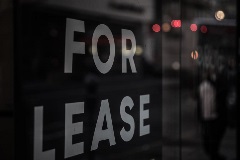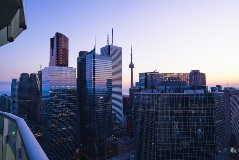
Overview
I have a good friend who practices commercial real estate in New York City and is bemoaning the utter collapse of the real estate market over there. He tells me that previously executed real estate sales of commercial property are being "reconsidered" by purchasers. The sellers are granting reductions of purchase prices almost immediately upon request by purchasers in the range of 10-25%, just so that they can avoid "eventual" litigation since courts remain closed. Vendors would rather close than risk the litigation with perhaps impecunious purchasers and even further drops in values of their commercial real estate. On the other hand, other purchasers are sitting on the sidelines waiting for further significant price drops which means that for the time being, commercial real estate market has ground to a halt whilst bargain hunters await further deals.
As for commercial leasing, there are many tenants who cannot pay and are not meeting their office, commercial and retail rents. Apparently, some landlords in NYC are offering 50% reductions from the commencement of the COVID-19 closure period and continuing indefinitely. Other tenants are simply making their own reductions in the face of landlords who do not address the issue.
But even more troubling than the current cash flow crisis is what is coming ahead. For instance, big banks in the U.S. are preparing to remodel their offices meant for thousands, to house a mere fraction of that number, either by relocating employees to suburban outposts or leaving them at home to work indefinitely.
According to Natalie Wong of Bloomberg, JP Morgan Chase & Co. expects to keep its offices half full at the most for the "foreseeable future" and Goldman Sachs Group Inc. is reopening its Paris office with a maximum of 20% of staff allowed in on any given day. "It is very difficult to imagine large numbers of people flocking back to Manhattan in these tall high-rise buildings where they might have to wait a couple of hours just to ride the elevator". Darrin Buelow, a principal of Deloitte Consulting and leader of the firm's global location – strategy business said in an interview.
Here in Canada, office landlords are busy revamping their space and coming up with policies that would clearly continue to follow the social distancing rules, both in common areas and elevators. One way traffic is the norm in Oxford buildings in the hope that this will entice employers and employees to return to business, once Phase 2 or Phase 3 in Ontario is achieved.
However, after more than 2 months of remote working for most office employees, and with the threat of the second wave of COVID-19 coming back via crowded transit, elevators, etc., it remains to be seen whether the American banking examples will flood here into Canada.
What does all that mean? It means that office space which was at a premium before in the GTA and exploding in terms of new construction, will now be in excess with tremendous amounts available for sub-leasing.
Major pension funds and other institutions have already suffered huge cash flow losses because of the shutdown of both commercial and retail operations. Going forward, dark clouds clearly hover above the commercial real estate market as a return to the pre-COVID-19 crowded office space with people shoulder-to-shoulder, is not coming back. What will take its place and its impact on existing and future commercial real estate, is very much open to question.




